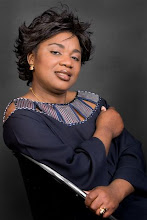Women Rebuilding Africa Programme (WRAP)
“Reaching Millennium Development Goals in Africa through Empowerment of women”
Project Title:
Financial Education for Women of Africa
“Giving back the economic power”
Project managed
By
Contact Person:
Madelein Mkunu
Tel: 002721 551 99 29
Mobile: 00 27 84 919 3398
E-mail: Madelein@leadingwomenofafrica.com
Problematic
“EVERYBODY wants it. Nobody understands it. Money is the great taboo. People just won't talk about it. And that is what leads you to subprime. Take the greed and the financial misrepresentation out of it, and the root of this crisis is massive levels of financial illiteracy in South-Africa”, specially amongst women.
For years John Mkunu has been telling anyone who will listen about the problems caused by widespread ignorance of finance. Financial aid in Billion, has been poured in South- Africa by differents Donors and mainly the Government and others to support and give poor people in the worst-hit parts of the continent “a hand-up, not a handout” without a mixture of financial education, advice and basic banking knowledge. Among other things, we ask ourselves a simple question to many poors women in the poorest countries in Africa that what come first to lead them to financial freedom: Money or education? To our great surprise, 90% choose money education! To achieve the Millennium Development Goals , the founder of The Leading Women of Africa believe that poverty mentality is the main and driving force of poverty in Africa and anything to do with should start first by a personal development readiness .Since then, hour-long sessions has already been taken by hundreds of women of the grassroots, most of them in the SMMEs in the continent.
For too long,South- Africa's education system has failed to equip students and mainly African women with the knowledge they need to make good financial decisions. An alarming number of adults are unable to balance a checkbook, understand the terms of a basic mortgage, realize the benefits of compound interest, and properly manage credit card debt.
Today we are suffering the consequences.A lot of money have been given, and a lot of as well lost . We can see it in the subprime mortgage meltdown, skyrocketing credit card debt, personal bankruptcies, and a low savings rate. Beyond individual’s broken dreams, this lack of financial and economic education is threatening the competitiveness and wellbeing of our continent. So what can--and should--be done about it?
“Financial illiteracy is the greatest threat to the development of Africa because it undermines our fragile economy” says John Mkunu, Director of Mages Investment Africa. Education is the ultimate poverty eradication tool. When you know better, you do better....
And that is exactly the Leading Women of Africa concern of the moment: we can not empower women financially without teaching them about money and finance principles
That low-wealth communities, the world over, represent future emerging markets waiting to be born. That one person can make a diference, and we are that one. That we are all accountable and responsible for the world we live in, because it is literally the world we create. A little hope can make the difference.
The UK funded research into banking in South Africa, Namibia, Zambia,Botswana , Uganda,Tanzania and Kenya all seven Nations have a total population of 162 million (a fifth of the population of Africa) and a total adult population of 92 million . Only 27 million (29%) out of the 92 million adults have a bank account. Also 49% of adults in the seven countries use no financial products at all, not even informal products. There are 21 million people in the seven countries who don’t have bank account but , who do have access to, or own a mobile phone. About a third of the unbanked population
Of the 21 countries where estimated adult illiteracy rates remain high than 50 per cent, 13 are located in Sub – Saharan Africa. Women account for two-thirds of them.
At present more than two billion people, many of them living on less than $1 a day do not have access to basic financial services taken for granted in rich countries, such as bank accounts, insurance or loans.
Africa has the world’s lowest savings rate and financial literacy levels - in Zambia nearly 50% of the adult population don’t understand how to use basic financial products such as savings accounts. And while only one in 13 people in the UK doesn't have a bank
account, in Africa the figure is almost three in four. But financial education can make a real difference by increasing awareness and the use of financial services, which in turn promotes economic growth and helps to tackle poverty.
In a chat with a banker, online banking has not fully taken its ground in Sierra Leone. Though some banks claim to be operating with this new innovation, it has been observed that consumers have not started benefiting en mass from the services.
There are questions though about the workability of this service if it is introduced as anticipated. With a high-end internet users of about 60,000 and low end users of 30,000 in relevance to the approximately 250,000 active bank account holders in the country, online banking may be in for a hard time to succeed in Sierra.
If we don’t invest in women now by developing their financial literacy potentials we may loose definitly their valuable skills to poverty, ignorance, HIV/AIDS…and the list is long…
For more information about this project, please contact: Madelein Mkunu - info@leadingwomenofafrica.com
Wednesday, September 24, 2008
Subscribe to:
Post Comments (Atom)

No comments:
Post a Comment